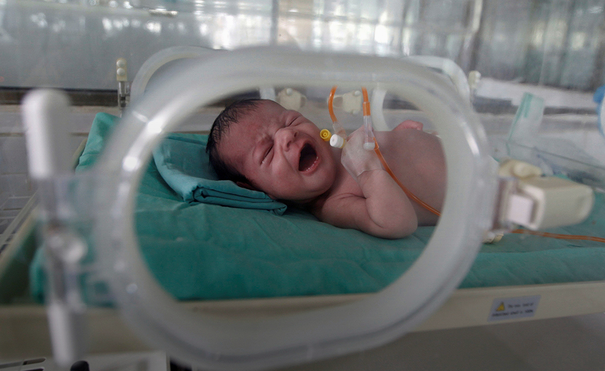The South Dakota Senate overwhelmingly passed a pro-life bill Tuesday to protect newborn babies who survive abortions from infanticide.
Sioux Falls Argus Leader reports the vote was 32-3 on state House Bill 1051, which now heads to pro-life Gov. Kristi Noem’s desk for her signature. It passed the House in January.
Sponsored by state Rep. Fred Deutsch, R-Brookings, the pro-life legislation requires that the same basic medical care be provided to a baby who survives an abortion that would be provided to any other baby born at the same gestational age. Doctors who do not could face huge fines and the loss of their medical license. Babies born alive and their mothers also could sue doctors who fail to provide basic medical care under the legislation.
“Once that baby is out on the table, they’ve gained the right to life,” state Sen. Al Novstrup, R-Aberdeen, said Tuesday, according to the local news.
During a January hearing, Deutsch emphasized that the bill is important not only to save lives but also to understand how many babies do survive abortions.
“How do we know it doesn’t happen if we don’t track the data?” he said.
Follow LifeNews.com on Instagram for pro-life pictures and videos.
Lawmakers also listened to the testimony of Melissa Ohden, who survived an abortion in 1977. Ohden said only eight states keep track of babies who survive abortions, and five of the eight reported 108 abortion survivors over a 12-year period.
“We need to have public reporting of failed abortions and abortion survivors required across the U.S.,” she wrote on Facebook after the hearing. “As I’ve said many times, don’t tell me it’s not a problem if you’re not even attempting to track it.”
The South Dakota Right to Life and the South Dakota Catholic Conference support the legislation.
Abortion activists and a few medical workers lobbied against it. According to the local news, a group of doctors and medical students wrote a letter to lawmakers recently urging them to vote against the bill.
They claimed the bill could have a “devastating impact on families of infants with lethal anomalies, who may only want to hold their child and say goodbye but would be deprived of this opportunity.”
But this is misleading. Parents who choose to abort unborn babies with fatal anomalies do so expecting the baby to die in the womb. Abortion is not their only option, nor their best one if they want to hold their child. Many parents choose life for babies with fatal disorders, cherishing the short time that they have together while doctors provide comfort care until their newborn child dies.
Another argument against the bill was that Planned Parenthood, the only abortion facility in the state, does not do abortions after 13 weeks, so none of the babies who are aborted are viable.
However, there is nothing prohibiting Planned Parenthood or another abortion facility from doing abortions up to 20 weeks in South Dakota. What’s more, President Joe Biden and other Democrat leaders are pushing policies to expand abortions through the “codification” of Roe v. Wade into federal law and the Equality Act – actions that could force states to allow late-term abortions.
Deutsch’s bill would make sure that, if late-term abortions start happening in the state, protections would be in place for babies who survive.
Babies who survive abortions deserve the same compassionate medical care as any other baby does, and a number of states are passing legislation to ensure that they receive it. Kentucky passed a similar bill, the Born Alive Infant Protection Act, in January.
Babies do survive abortions, though no one is sure exactly how many.
Between 2016 and 2018, three states reported 40 babies were born alive after abortions. According to the state health data, 11 babies were born alive in Minnesota, 10 in Arizona and 19 in Florida. Texas reported six babies were born alive in botched abortions in 2019. In Michigan, state health reports from 2008 through 2013 indicate that 11 babies were born alive during abortions.
Reports from other countries prove that babies survive abortions, too, and legal protections for them are needed. In Canada, the Canadian Institute of Health Information recorded 766 late-term, live-birth abortions over a five-year period in 2018. And in Australia, the country’s health minister admitted that 27 babies survived abortions in the state of Western Australia between 1999 and 2016. A report out of Ireland in the fall also suggests babies are surviving abortions and being left to die there.








